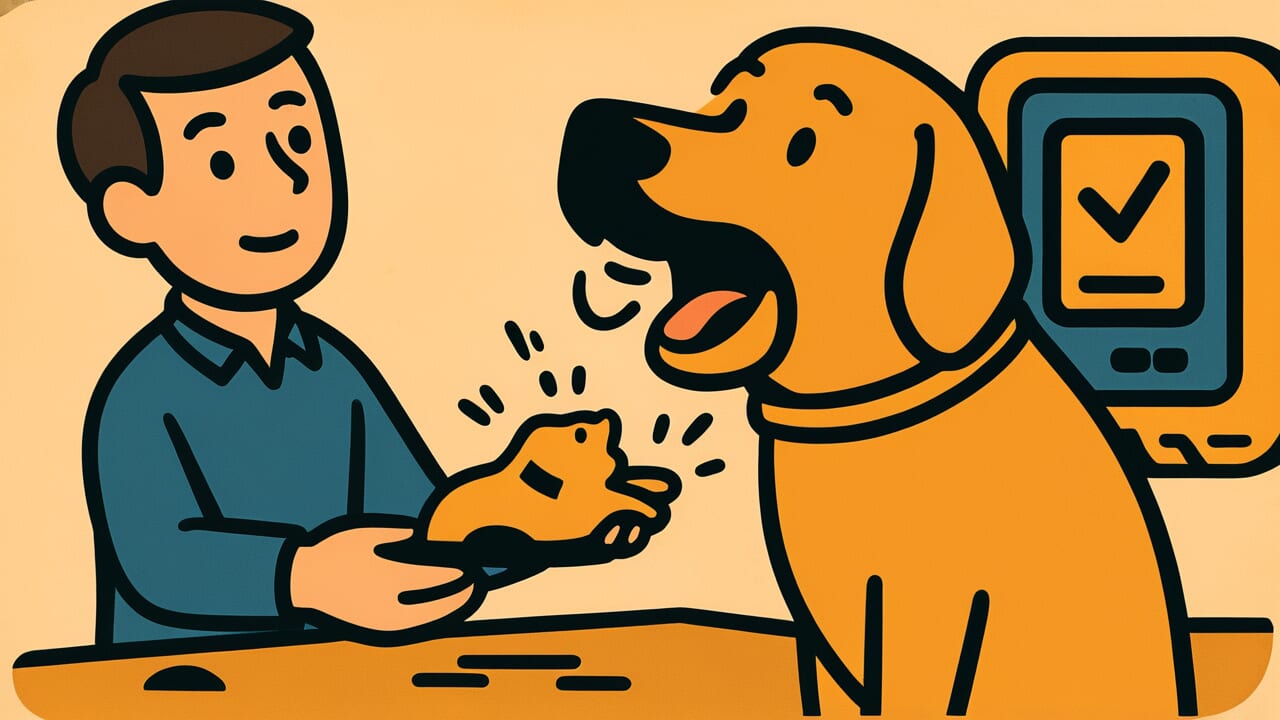How to Read “Sic a dog that won’t eat”
Kuwanu inu wo keshikakeru
Meaning of “Sic a dog that won’t eat”
“Sic a dog that won’t eat” is a proverb that describes the foolishness of bringing conflict where none is needed. It refers to actions that deliberately cause confrontation or conflict in situations that could otherwise remain peaceful.
This proverb applies when someone says something unnecessary or drags uninvolved people into a situation, creating conflict that didn’t need to happen.
Like siccing a dog that won’t even eat the prey, causing pointless commotion, it warns against making problems bigger when there’s no benefit to anyone.
Even in modern society, this expression fits perfectly when people stir up unnecessary arguments on social media or complicate workplace issues by involving unrelated people.
Starting conflict benefits no one. Instead, everyone ends up exhausted. This proverb remains relevant today as a warning against such foolish behavior.
Origin and Etymology
No clear written records document the origin of this proverb. However, the structure of the phrase offers interesting insights.
The word “keshikakeru” means to excite an animal like a dog and send it after prey. Picture a hunting scene.
When a hunter sends a dog after prey, the dog expects to catch and eat it. The reward of “eating” motivates the dog to chase desperately.
But a “dog that won’t eat” is a dog that gets no reward from the prey. Siccing such a dog is meaningless for the dog itself.
More importantly, it only creates conflict and commotion without benefiting anyone.
This expression likely emerged from Japan’s traditional hunting culture and the practice of using dogs for hunting.
In actual hunting, the relationship between dog and prey, and the presence or absence of reward, were crucial elements.
Such practical wisdom was probably adapted as a warning about human relationships and social conflicts, eventually becoming established as a proverb.
The lesson of avoiding unnecessary conflict is expressed through the concrete scenario of hunting.
Usage Examples
- That person is always siccing a dog that won’t eat, constantly dragging others into trouble
- The discussion was almost settled, but someone made a comment like siccing a dog that won’t eat and ruined everything
Universal Wisdom
The proverb “Sic a dog that won’t eat” has been passed down through generations because it recognizes an essential human trait.
That trait is our strange tendency to sometimes start conflicts even when there’s no benefit.
Why do people do this? One reason is boredom and the craving for stimulation.
Seeking change in peaceful daily life, we unconsciously stir up trouble. The desire to assert our presence may also play a role.
By moving something and drawing reactions, we want to confirm that we exist in this space.
Thinking more deeply, humans are creatures attracted to complexity. We prefer dramatic developments over simple solutions.
Like seeking a story, we try to create ups and downs in ordinary reality.
However, our ancestors understood this human nature and taught us that it’s foolish. Conflict makes no one happy.
Especially purposeless conflict leaves only emptiness. This proverb acknowledges human weakness while showing the wisdom to transcend it.
The value of maintaining peace, the richness found in quietness. These are truths that remain unchanged across time.
When AI Hears This
The act of involving others in conflict without losing anything yourself can be analyzed in game theory as “agent cost reduction to zero.”
Normally, moving someone requires cost. Employment requires salary, negotiation requires compensation.
But the structure this proverb shows involves the instigator not even providing food as reward, only exploiting the dog’s attack instinct.
In other words, it’s the ultimate asymmetric game of using others’ resources for free to achieve your own goals.
What’s noteworthy here is the externalization of responsibility: “even if the dog loses, I’m not hurt.”
In economics, this is called “moral hazard.” Those who bear no risk tend to become excessively aggressive in decision-making.
Indeed, instigators who make others attack on anonymous social media, or structures where someone stays safe while proxy forces fight, exemplify this principle exactly.
Even more interesting is the irrationality of the sicced dog “moving even with zero reward.”
Though disadvantageous in game theory terms, this proverb sharply captures the moment when emotions and instincts override rational judgment.
In human society too, people exploited through justice or anger and driven into unprofitable conflicts never cease to exist.
Understanding this structure allows you to judge calmly who’s really gaining the benefit.
Lessons for Today
What this proverb teaches you today is the importance of “the courage to protect quietness.”
Around us are countless situations where we want to interfere, moments when we want to say something.
On social media, someone is always arguing. At work, various opinions fly around constantly.
But you don’t need to participate in every situation. Not sticking your nose into unrelated conflicts, swallowing unnecessary words, not making problems bigger.
This isn’t a passive attitude. Rather, it’s a sign of mature judgment.
Especially in modern society, information spreads instantly. Small sparks can become large flames.
That’s why the choice not to plant seeds of unnecessary conflict matters more than ever.
Your one word can protect someone’s peace or destroy it. Being aware of that responsibility is adult wisdom.
Maintaining peace isn’t doing nothing. Rather, it’s actively avoiding conflict and building constructive relationships.
When you choose a life that doesn’t sic a dog that won’t eat, truly important time with truly important people will emerge around you.



Comments